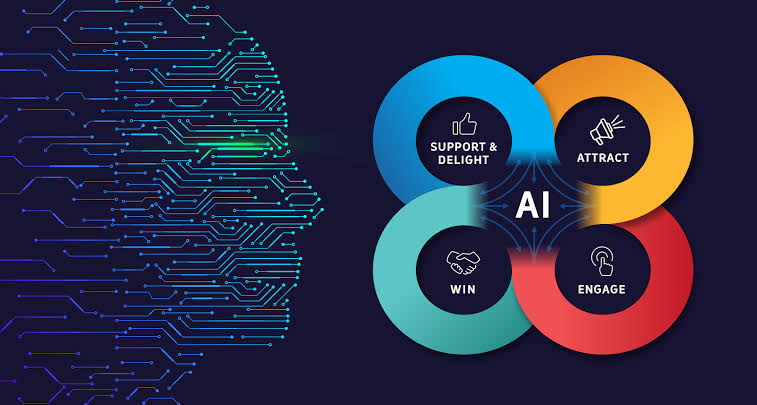As it currently sits, the future of marketing is intertwined with AI, and most likely, only organizations that embrace its transformative power will thrive as it continues to reshape the digital economy, the role of CMOs, and redefine the entire marketing landscape.
Today, the impact of AI in marketing is supported by compelling data and it is projected to have an even more significant influence in the future.
Brands that create personalized experiences using AI are already witnessing revenue increase by 6% to 10%—two to three times faster than those that don’t prioritize personalization according to a market research conducted by Globant. High-performing marketing teams are also twice as likely to use AI in their campaigns, indicating that it is becoming a standard part of the marketing toolkit.
For CMOs however, it cannot be overemphasized how much leveraging AI can drive remarkable results; from growth and enhanced customer experiences to staying ahead of industry trends and meeting evolving customer needs, embracing AI can help marketers make more informed decisions, enhance efficiency, and foster meaningful customer relationships.
Looking ahead, the role of AI in marketing is set to grow further, with the market projected to reach $29.79 billion by 2025.
It is expected to continuously offer a substantial return on investment (ROI), with businesses reporting a boost in customer engagement, an increase in sales, and a decrease in customer service costs.
However, challenges in AI adoption exist, with the need for more skills to implement and manage AI being a common obstacle.
To fully harness its potential benefits, marketers need a clear understanding of their marketing goals, the right tools, a skilled team, and a test-and-learn approach.
Additionally, it is also crucial to have a strong technology partner who can guide organizations through the intricacies of the AI journey.
Some remarkable AI in Marketing success stories showcased in a Globant report demonstrates the tangible benefits of effective AI implementation in marketing.
For instance, American Express utilizes predictive analytics to proactively address customer concerns and improve retention. Adidas leverages AI chatbots to provide personalized training advice, leading to increased engagement and brand loyalty.
Harley-Davidson, on its part, utilizes AI to identify and target potential customers with personalized marketing messages, resulting in a significant increase in sales leads. L’Oreal analyzes social media trends and customer feedback using AI, enabling them to develop products that resonate with their customers.
Artificial intelligence has become a powerful and transformative force in the marketing landscape, as it continues to revolutionize how businesses engage with customers, optimize campaigns, and deliver personalized experiences.
Meanwhile, the future of AI in marketing holds even more transformative changes, including AI-powered voice search, image recognition, and predictive advertising. Staying ahead of these trends and leveraging the power of AI can ensure that brands remain at the forefront of marketing innovation.




